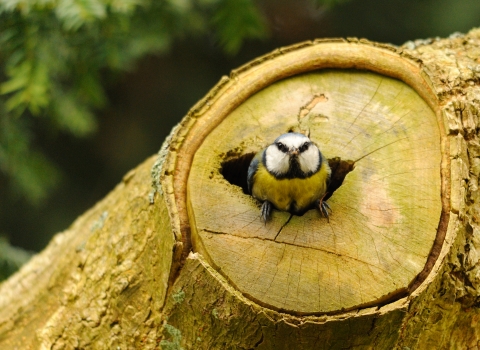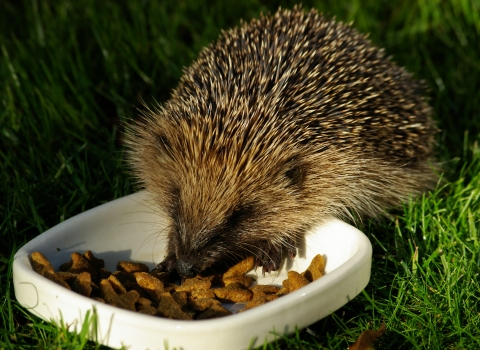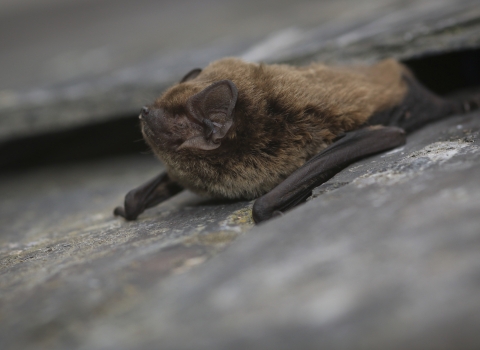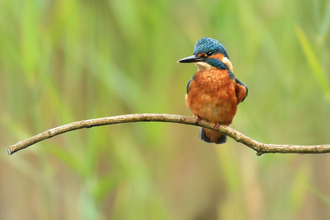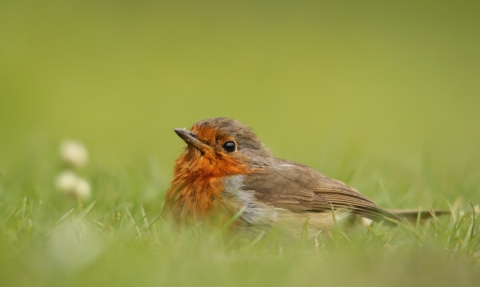
Tom Hibbert
Injured wildlife advice
What to do if you find a sick or injured animal
As your local Wildlife Trust we survey, monitor, conserve and campaign for wildlife across the region; lobbying Government and working on your doorstep to give wildlife a voice and protect important wild spaces. What we don't do, however, is take in injured wildlife.
Unfortunately we aren't a wildlife rescue, and we don't have the facilities or the expertise to nurse birds, hedgehogs and other creatures back to health.
So, what should you do if you find a sick or injured animal?
It all depends on the kind of animal you have found and what appears to be wrong with it. Below, you can find advice about what to do next in some of the most common situations, and crucially, who to contact to make sure the animal gets the help it needs as soon as possible.
To find your nearest wildlife rescue and rehabilitation centre please scroll to the bottom of the page.
Baby birds and fledglings
It isn't uncommon to find baby birds on the ground during nesting season. If it has no feathers, or very few feathers, it is a nestling that is too young to be out of the nest. It may have fallen out, so see if you can see the nest. Only return the bird if you are absolutely sure you have found the right nest, and only if the nestling is healthy. If you can’t find the nest or the chick is visibly poorly, take it safely to a professional wildlife rescue (numbers at the bottom of this page).
If you find a bird that is more or less fully feathered, it is a fledgling that has taken its first brave flight. Fledglings can't actually fly properly when they first leave the nest and may spend up to a week near the ground, so please don't be worried. The parents will be off gathering food or watching from a safe distance. Unless the fledgling is visibly sick or injured please leave it well alone. If it is near the road, on a path or in another dangerous place, gently pick it up and move it to a sheltered spot as nearby as possible. If the fledgling is definitely injured or obviously unwell, transport it safely home and call your local wildlife rescue.
Injured adult birds
If you have found an adult bird that is struggling to fly, can't walk or is visibly sick or injured in another way, please call your local wildlife rescue for advice. Small birds like blue tits and blackbirds can be safely taken home while you call the rescue, but larger birds need specialist handling and are best left alone to avoid unnecessary stress.
Hedgehogs out during the day
It can be exciting to see a hedgehog out and about in the daytime, but this is actually a sign that the hog isn't very well at all. Hedgehogs are nocturnal and don't venture out in the daytime unless they're poorly or malnourished, so it's crucial to get help as soon as possible or the hog may die. Look out for them looking disoriented, struggling to walk or showing little fear of humans.
Hedgehogs in your garden
Keep a close eye on the hedgehogs in your garden. Like with hedgehogs seen out during the daytime, take action if you spot a hog that is visibly struggling.
Unfortunately, garden hedgehogs often fall victim to horrific fire or strimmer injuries. Please check bonfires, piles of leaves and grass for hedgehogs before lighting or tidying up, and if you do accidentally injure one, call your local hedgehog rescue as soon as possible.
You can find some contact details at the bottom of this page, or visit The British Hedgehog Preservation Society website for details of local volunteers who can offer first aid advice and contact details for a hedgehog rescue in your area.
Grounded bats
Any bat that is found on the ground or in an exposed area - especially during the day - is likely to need help. However, please bear in mind that bats have special protections and must only be handled by professional bat officers.
If the bat is on the ground, on an outside wall, or in another exposed area where it could be vulnerable, try to get it into a box that contains a clean dishcloth where the bat can hide. Place the box over the bat and slide a piece of card underneath it, like you would with a spider. If you must handle the bat to get it into the box, wear gloves or use a tea towel to gently scoop it up. You should never handle a bat with your bare hands.
Once the bat is safely contained, pop a milk bottle lid full of water into the box and call the National Bat Helpline on 0345 1300 228. Click here for more advice from the Bat Conservation Trust.
Bats in the house
Don't panic if you find a bat flying around in your house, and don't try to catch it (this could cause the bat unnecessary stress or injury). Instead, if it's a warm evening, close the door to the room, open the windows as widely as possible and dim the lights. This will give the bat a chance to find its own way out.
If you find the bat flying during the day, wait until it lands, contain it as we have described above, and release it at dusk. You can find more information on the Bat Conservation Trust's website.
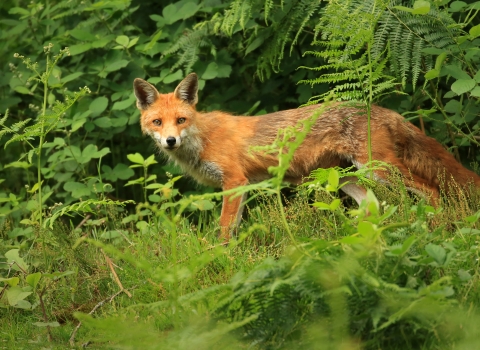
Jon Hawkins - Surrey Hills Photography
Local wildlife rescue and rehabilitation centres
As we are not a wildlife rescue, we can't help with sick or injured wildlife and you are best contacting your local rehabilitation centre. Have a look through the contact numbers below.
Please note that these rescues are third parties and we aren't responsible for monitoring how they are run.
Wildlife rescues in Lancashire
Chorley Hedgehog Rescue
Website
Helps: Hedgehogs only
Location: Chorley
Tel: 07599 950153
Hedgehog Rescue Blackpool
Website
Helps: Hedgehogs only
Location: Blackpool
Mob: 07577010011
North Lancashire Bat Group
Helps: Bats only
Location: Silverdale
Tel: 01524 701316
Mob: 07917 021073
Facebook group
Wolfwood Wildlife Rescue
Website
Helps: All wildlife
Location: Lancaster
Tel: 07931 220 094
Lancashire Badger Group
Website
Helps: Badgers only
Location: Lancaster
Tel: 08448 707908
Bolton and Bury Swifts
Helps: Swifts only
Location: South Lancashire
Tel: 07557 796508
Facebook page
Wildlife rescues in Greater Manchester
South Lancashire Bat Group
Website
Helps: Bats only
Location: Greater Manchester, Bury, Bolton, Rochdale, Oldham, Stockport and Wigan
Tel: 01617 648850
Raptor Rescue
Website
Helps: Birds of prey only
Location: Warrington
Tel: 08702 410609
Rochdale Hedgehog Rescue
Website
Helps: Hedgehogs only
Location: Rochdale
Tel: 01706 860904
Wildlife rescues in Merseyside
Wirral Fox Rescue
Website
Helps: Foxes
Location: Hoylake
Tel: 07900 615972
The Fox Rescuers
Website
Helps: Foxes only
Location: Stockport. Call for rescue catchment area locations.
Tel: 07572 270432

